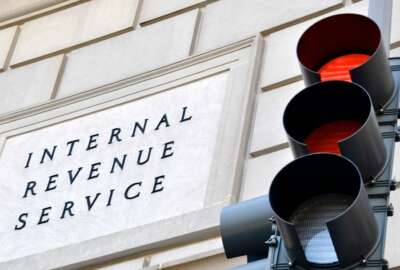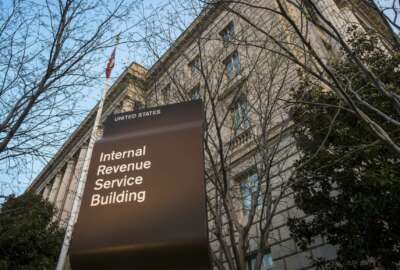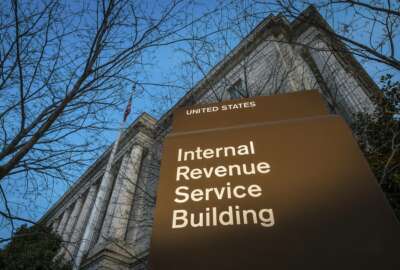
IRS bringing more employees back to office in 2 waves through June
This marks agency's third announced recall of employees during the coronavirus pandemic, at a time when only a handful of agencies have sent their staff back to the...
The IRS will bring several waves of employees back to the offices across the country later this month, little more than a month out from the extended tax-filing season deadline.
IRS Commissioner Chuck Rettig, in an email to employees Wednesday night, said agency management will contact employees who must return to the office as early as next week, to allow them to make childcare and other household arrangements.
Those told to return to office will handle “nonportable work” at processing centers, printing facilities and call centers.
The IRS will resume additional operations in the following areas on the following dates:
- June 15: Georgia, Missouri, Michigan, Tennessee
- June 29: Indiana, Ohio, California, Puerto Rico, Oregon
This marks agency’s third announced recall of employees during the coronavirus pandemic, at a time when only a handful of agencies have sent their staff back to the office under “phase one” of their plan to resume full operations.
Meanwhile, other agencies have outlined what phase one will look like for their workforce, but have not set a date for when employees will return.
Unless they hear otherwise from their supervisors, Rettig said that employees should remain in their “current work situation,” which can mean telework or weather and safety leave.
About 11,000 IRS employees previously on weather and safety leave returned to offices on Monday in Kentucky, Texas and Utah. The agency in late April offered incentive payments to 10,000-11,000 employees working at 10 campus locations across the country to volunteer to return to work.
The National Treasury Employees Union is waiting to hear back from the IRS on the number of employees needed to return to the office, but said the latest wave of recalls won’t affect all employees working in those states and territories.
The IRS has limited the number of employees coming back to the office to ensure that they can continue to practice social distancing.
NTEU said employees must use their personal leave if they need to stay home to care for their children. The union has asked the IRS and the Office of Personnel Management to consider workplace flexibilities such as administrative leave, split shifts, job sharing, and part-time schedules.
“We understand that the IRS has a backlog of important work that cannot be done remotely and they need to restart systems as soon as possible, but our concerns about the coronavirus pandemic have not changed,” NTEU President Tony Reardon said in a statement. “Employees remain anxious about the risks posed by taking public transportation, being in enclosed facilities with hundreds of coworkers and whether their work stations will be consistently and properly cleaned and disinfected.”
Employees who exhibit coronavirus symptoms should not come into the office, and may require a medical note if they take sick leave for more than three consecutive days. High-risk employees, as defined by the Centers for Disease Control and Prevention, can request weather and safety leave if they cannot telework.
In addition to dealing with a tax filing season that’s extended to July 15, the IRS has also sent out more than 159 million pandemic stimulus payments. Rettig in his email thanked IRS employees for dealing with an increased workload under these extraordinary circumstances.
“I am constantly in awe of this agency’s resilience and your steadfast dedication to serving the American people,” Rettig said. ”We greatly appreciate our employees who continued working in our offices throughout these challenging times, and the volunteers who have returned to help with critical issues. I am also grateful for the hard work and flexibility of those of you who have teleworked non-stop.”
Copyright © 2025 Federal News Network. All rights reserved. This website is not intended for users located within the European Economic Area.
Jory Heckman is a reporter at Federal News Network covering U.S. Postal Service, IRS, big data and technology issues.
Follow @jheckmanWFED





